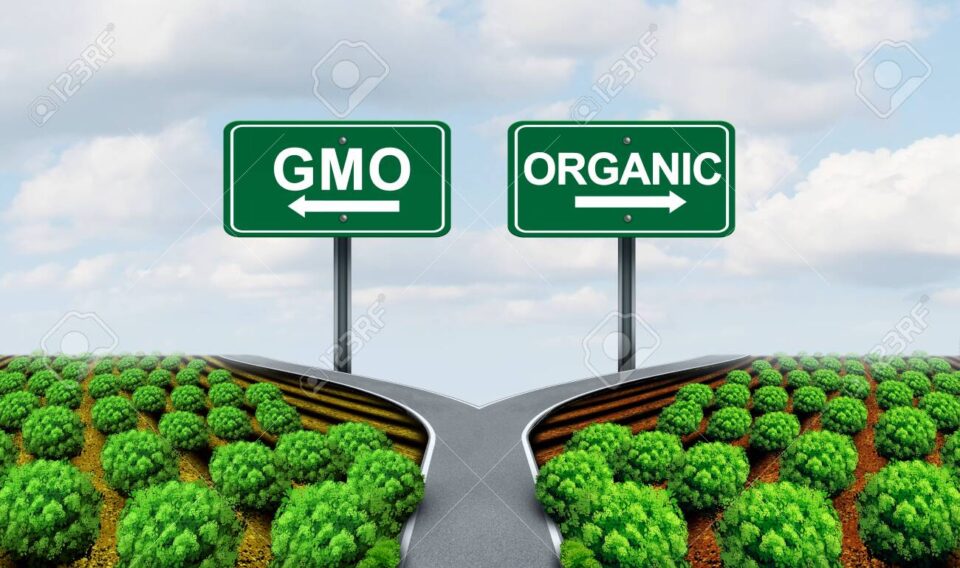By Adem Andrew
On April 9, 2024, an opinion was published titled Unlocking Uganda’s Agricultural Potential: The Urgent Need to Embrace GMOs for Food Security and Economic Growth. After detailed analysis, it was discovered that the article had misleading information that made readers assume that without GMOs, Uganda is likely to fail both in terms of food security and economic growth.
It is a fact that food insecurity remains a pressing issue affecting millions of people around the world, including Uganda. While the article suggests genetically modified organisms (GMOs) as a solution, transitioning our food systems to agroecology presents a more sustainable and equitable path towards food security and community-led economic growth in Uganda.
Traditional farming methods, reliant on agroecological principles, have sustained communities for generations. However, the shift towards industrial agriculture has led to soil degradation and reduced biodiversity, exacerbating food insecurity. Embracing agroecology involves restoring the balance between agriculture and ecosystems, promoting diversified farming systems, and prioritising soil health.
Contrary to the article’s assertion, GMOs do not inherently address soil fertility issues; instead, they often perpetuate monoculture systems, further depleting soil nutrients. Agroecological practices such as crop rotation, intercropping, and the use of cover crops enhance soil fertility naturally, ensuring long-term agricultural productivity without relying on external inputs.
Moreover, GMOs do not address the root causes of food insecurity in Uganda, such as poverty and unequal access to resources. Smallholder farmers, who constitute the majority of Uganda’s agricultural workforce, will often lack the financial means to adopt GMO technology. In contrast, agroecology empowers farmers by promoting locally adapted, low-cost practices that improve resilience to climate change and reduce reliance on expensive inputs.
While GMOs may offer short-term solutions to pest and disease management, they pose long-term risks to agroecosystems and human health. Chemical-intensive GMO farming contributes to environmental pollution, water contamination, and the loss of biodiversity. In contrast, organic agriculture, a cornerstone of agroecology, avoids synthetic inputs, prioritizing natural pest control methods and promoting biodiversity conservation.
Furthermore, the assertion that GMOs offer increased nutritional value overlooks the diverse nutritional benefits of agroecological farming systems. Organic agriculture emphasizes the cultivation of nutrient-rich, locally adapted crops, enhancing dietary diversity and addressing malnutrition more holistically. By promoting indigenous food crops and traditional knowledge, agroecology fosters cultural resilience and strengthens community food sovereignty.
Critically, the safety of GMOs remains a subject of debate, with conflicting evidence regarding their long-term impacts on human health and the environment. While regulatory bodies may declare GMOs safe, independent studies raise concerns about potential allergenic, gene flow, and unintended ecological consequences. In contrast, organic agriculture prioritises consumer health and environmental sustainability, adhering to strict certification standards and promoting transparency in food production.
Moreover, the reliance on GMO technology perpetuates dependence on multinational corporations and external markets, undermining Uganda’s agricultural sovereignty. Embracing agroecology fosters self-reliance, empowering local communities to control their food systems and prioritise indigenous knowledge over corporate interests.
In addition to addressing food security concerns, embracing agroecology can also catalyse economic growth in Uganda more effectively than GMOs. Agroecological practices inherently promote local economic development by prioritising community-led initiatives and reducing reliance on expensive external inputs. Moreover, the emphasis on organic agriculture within agroecology opens up opportunities for value-added markets, where consumers increasingly demand sustainably produced goods. This shift toward agroecological farming not only improves small-scale farming’s economic viability, but also promotes rural employment opportunities and strengthens local food economies. Ultimately, by prioritising agroecology over GMOs, Uganda can foster inclusive economic growth that benefits communities across the agricultural landscape.
In conclusion, advocating for agroecology offers a more sustainable and equitable approach to addressing food insecurity in Uganda. By embracing agroecological farming practices, restoring ecosystem balance, and prioritising community resilience, Uganda can build a resilient food system that nourishes both people and the planet for generations to come. It’s time to prioritise agroecology as the foundation for sustainable food security in Uganda.
Adem Andrew works with small-scale farmers at ESAFF Uganda, where he has been part of campaigning against the introduction of GMOs in our food system for over 12 years.
Email: aadem@esaffuganda.org

